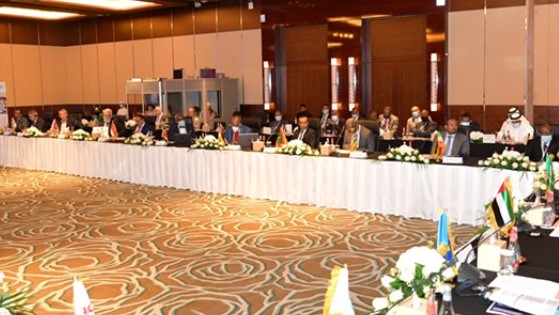Signatory States to the revised Code of Conduct concerning the repression of piracy, armed robbery against ships and illicit maritime activity in the western Indian Ocean and the Gulf of Aden Area, known as the Jeddah Amendment to the Djibouti Code of Conduct 2017, have agreed a raft of measures to combat new and emerging threats to maritime security.
The high-level meeting, held in Dubai (28-30 June), acknowledged that maritime threats have evolved and expanded beyond piracy into other challenges that have a damaging effect on the economies of the Signatory States.
The meeting adopted four resolutions aimed at strengthening measures to meet the new challenges. These include measures to develop:
- A robust regional information sharing network;
- Better coordination of capacity building through strengthening of relations of international partners through the Friends of the DCoC forum;
- Measures to boost the DCoC Trust Fund;
- Mutually beneficial relationships with international organizations and coalitions with a common vision to enhance maritime security in the region.
The response to all these challenges and the promotion of maritime security, cannot be achieved by one country or organization alone. The efforts must be collective and multinational
said European Union Ambassador to the United Arab Emirates, Andrea Matteo Fontana.
“Under the Jeddah Amendment, the region has now come up with very good initiatives for what we can consider as regional solutions for regional problems. The Jeddah Amendment also offers a very good framework for such cooperation,” added co-chair H.E. Mrs. Mariam Aweis Jama, Somalia Minister for Ports and Marine Transport.






























































